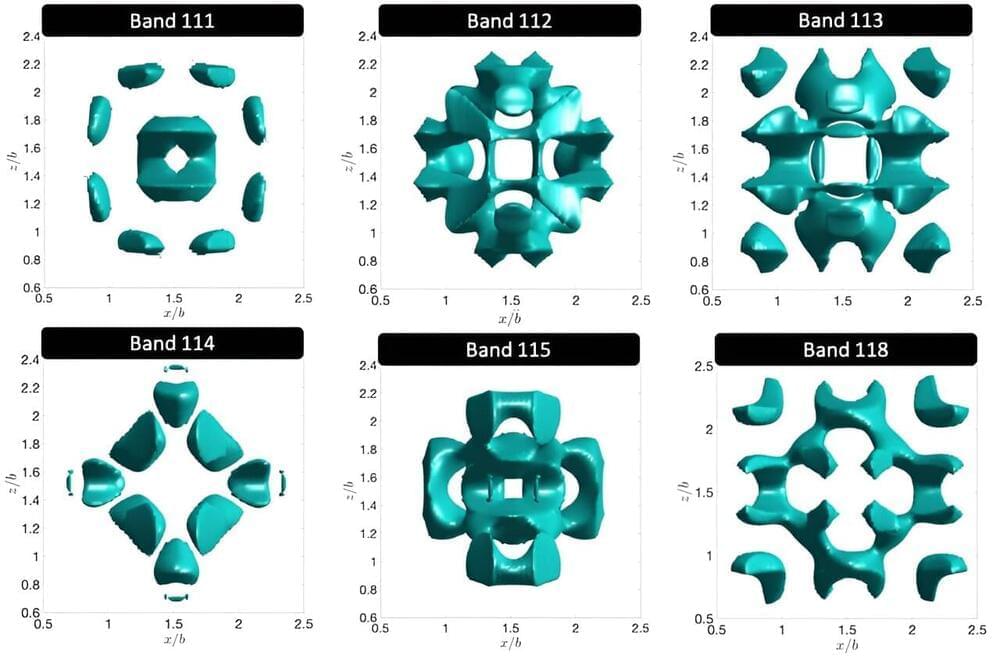Researchers from the University of Twente in the Netherlands have gained important insights into photons, the elementary particles that make up light. They ‘behave’ in an amazingly greater variety than electrons surrounding atoms, while also being much easier to control.
These new insights have broad applications from smart LED lighting to new photonic bits of information controlled with quantum circuits, to sensitive nanosensors. Their results are published in Physical Review B.
In atoms, minuscule elementary particles called electrons occupy regions around the nucleus in shapes called orbitals. These orbitals give the probability of finding an electron in a particular region of space. Quantum mechanics determines the shape and energy of these orbitals. Similarly to electrons, researchers describe the region of space where a photon is most likely found with orbitals too.
